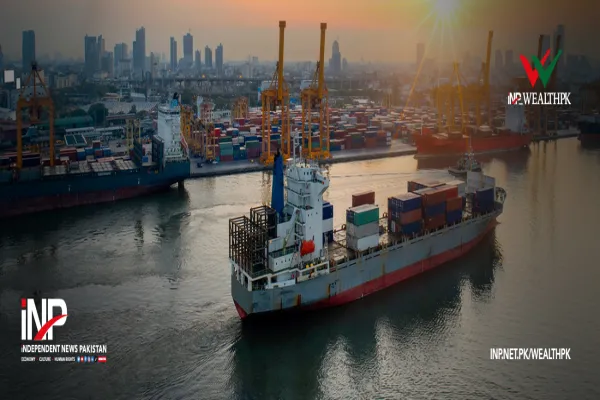i INP-WEALTHPK
Ahmed Khan Malik
Experts and industry leaders in Balochistan have expressed growing concern over the widening gap between academia and the industry, warning that this disconnect is significantly hindering the province’s economic development and industrial growth.

They highlighted that while Balochistan has abundant natural resources and potential for industrial expansion, the lack of coordination between universities and businesses is stifling innovation, productivity, and skilled workforce development. “Industries are often left to fend for themselves when it comes to research, technology, and human resource development,” said Naseer Subhani, Secretary of the Uthal Industrial Association.

Speaking to Wealth Pakistan, he said that academic institutions focus on theoretical knowledge without aligning curriculum with the practical needs of industries. “This disconnect is a major obstacle to industrial progress.”
He said that most graduates from technical and engineering programmes in the province are not adequately prepared for the labour market. “Employers report that students often lack practical skills, industry experience, and problem-solving abilities required to meet modern industrial standards. This skills gap is particularly evident in sectors such as mining, energy, agro-processing, and manufacturing, which form the backbone of Balochistan’s economy.”
Nisar Usmani, an entrepreneur from Hub Industrial and Trading Estate, said that a collaborative framework is urgently needed, where universities and research institutions work closely with industries to design specialised training programmes, internships, and joint research initiatives. “Such partnerships would allow students to gain hands-on experience while enabling industries to access innovative solutions for operational challenges.”
“Balochistan has a unique set of challenges and opportunities,” said Latif Mangrio, an economic expert. “The province is rich in minerals, fisheries, and agricultural resources. However, without applied research and an industry-ready workforce, these sectors cannot achieve their full potential,” he told Wealth Pakistan.
Highlighting examples from other regions, where strong collaboration between academia and industry has led to technological innovation, increased productivity, and the growth of small and medium-sized enterprises, he argued that adopting similar models in Balochistan could drive regional industrial development, attract investment, and generate employment opportunities.
Latif emphasised that policymakers must play an active role in bridging this gap. “Incentives for universities to engage with industries, funding for applied research, and the creation of innovation hubs are identified as essential measures to foster collaboration. Additionally, the introduction of industry advisory boards in universities could ensure that curricula remain relevant and aligned with market needs,” he elaborated.
“The industrial sector cannot grow in isolation,” Latif noted. “It is imperative to create an ecosystem where academic knowledge and industrial expertise complement each other. This is the key to developing sustainable industries that can compete nationally and internationally.”
He warned that failure to address the disconnect could lead to long-term economic stagnation. “Industries may continue to struggle with outdated practices, low productivity, and high reliance on external expertise, while talented graduates may leave the province in search of better opportunities elsewhere.”
The economic expert emphasised the need for immediate action to build strong bridges between academia and industry. “By fostering collaboration, Balochistan can harness its natural resources, develop a skilled workforce, and establish a competitive industrial sector capable of driving economic growth, innovation, and employment in the province.”
Credit: INP-WealthPk







